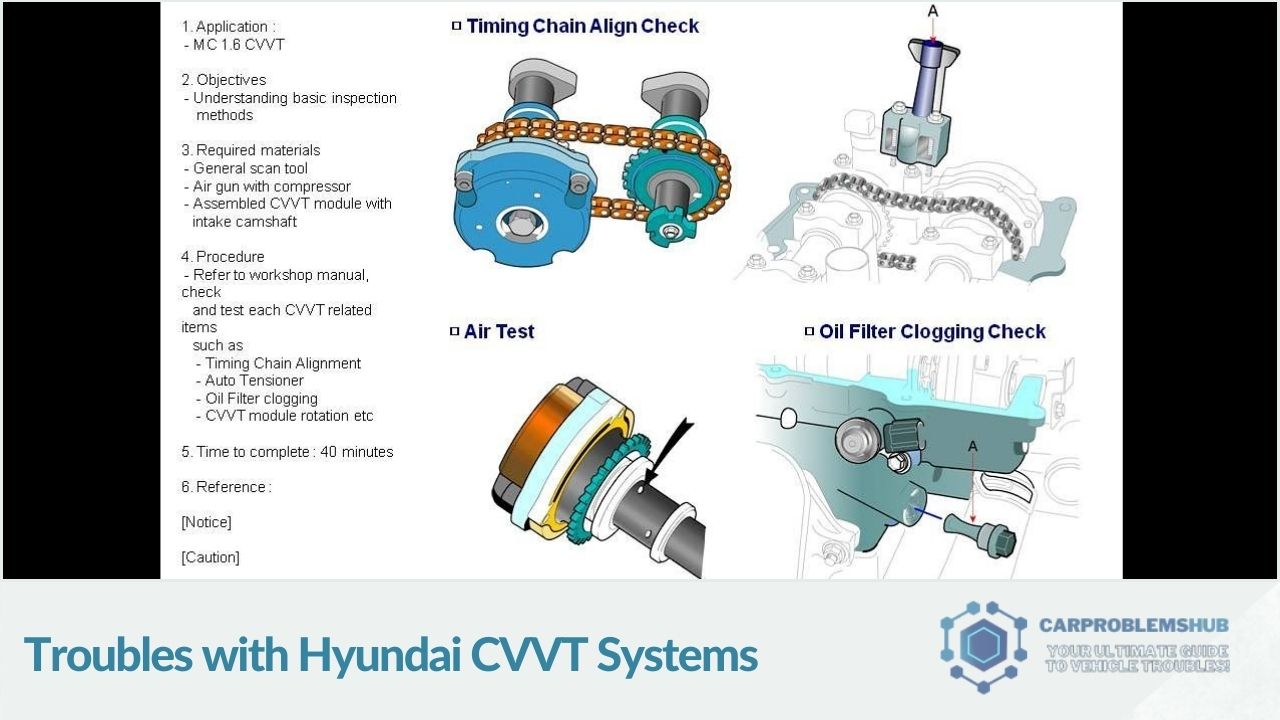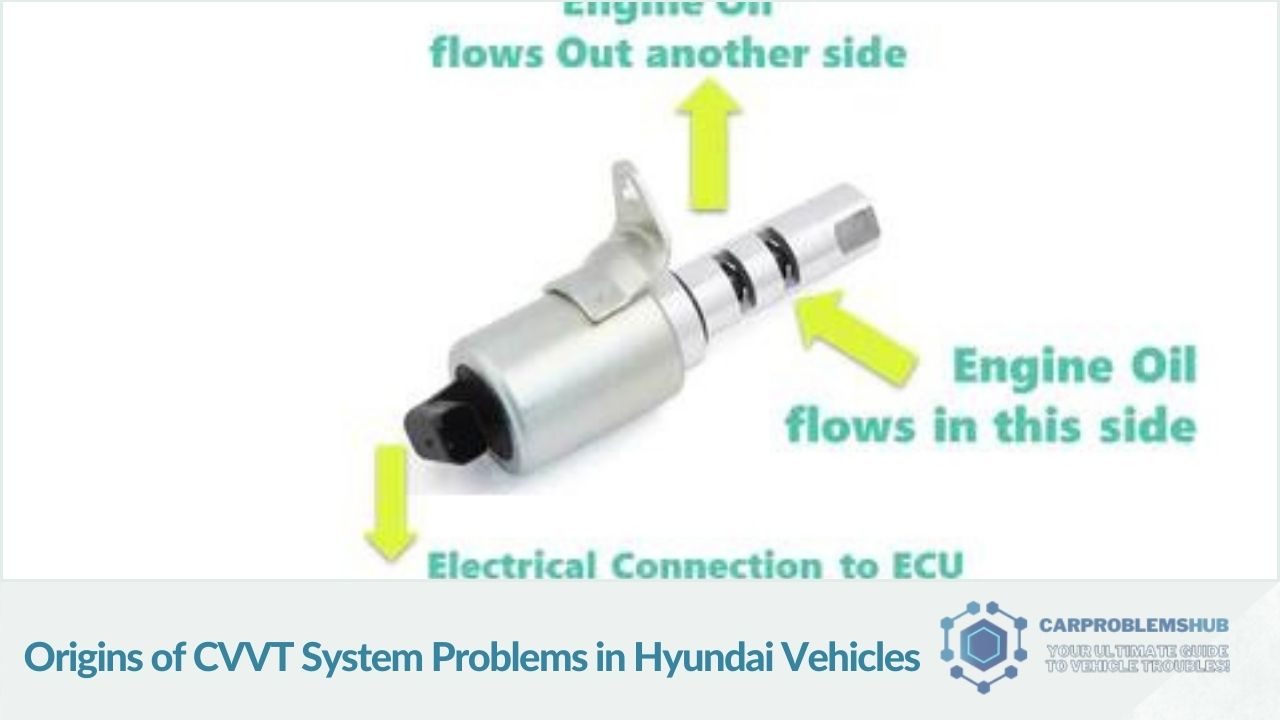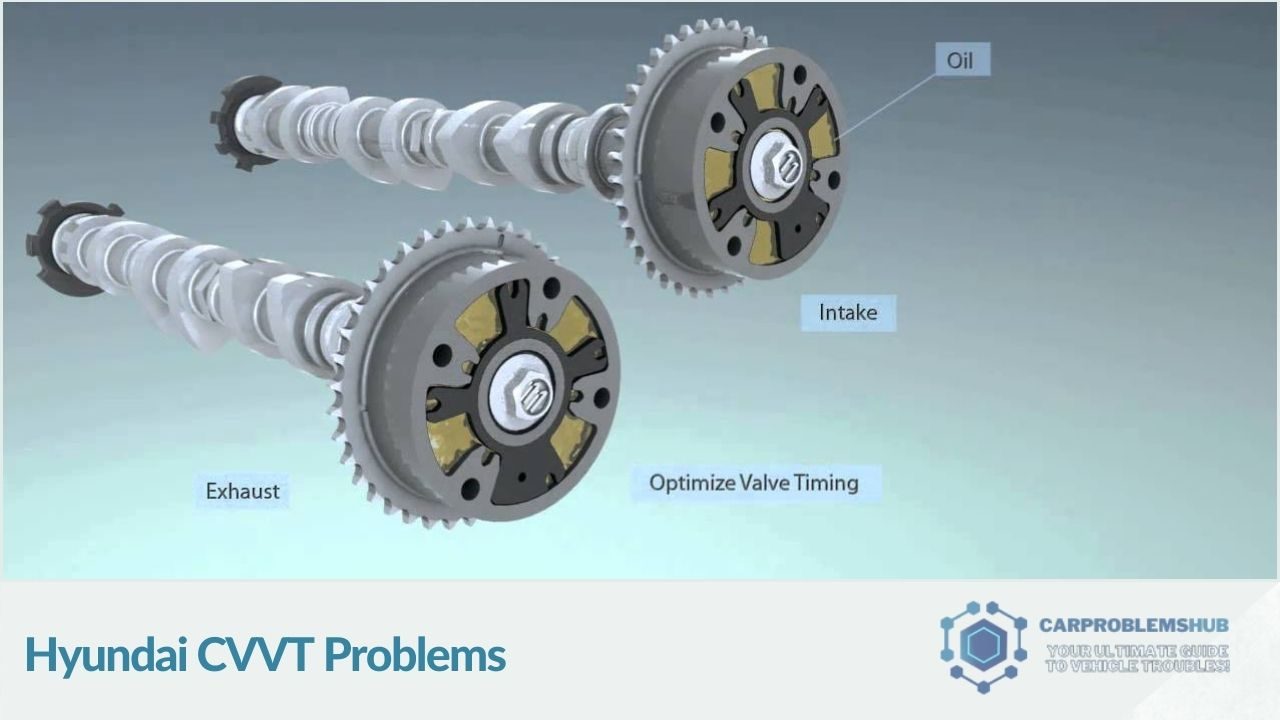Renowned for their diverse vehicle lineup, from handy compacts to robust SUVs, Hyundai vehicles often have a CVVT (continuously variable valve timing) system to optimize engine performance and fuel efficiency. Despite their innovative design, these systems are not immune to issues, sometimes leading to decreased fuel economy, unsettling engine noises, or, at worst, engine failure.
📢Read also: Navigating the Troubles of Hyundai Map Update Problems
Within the scope of this discourse, the persistent Hyundai CVVT problems will be elucidated alongside their origins and rectification strategies. Additionally, preventative measures to avert such issues will be shared.
Troubles with Hyundai CVVT Systems

Hyundai owners may encounter several CVVT system issues:
- Engine Noises: CVVT systems might emit rattles or chirps, typically due to wear or damage within the system's components.
- Fuel Efficiency Decline: A faulty CVVT system can impair the engine's ability to run efficiently, leading to increased fuel consumption.
- Engine Failure: The most grievous outcome of a CVVT malfunction could be complete engine failure, necessitating costly repairs.
Origins of CVVT System Problems in Hyundai Vehicles

Hyundai CVVT complications arise from several sources:
- Maintenance Lapses: Neglecting regular maintenance can expedite the deterioration of CVVT systems.
- Inferior Oil Quality: Substandard oil can be detrimental to CVVT components.
- Harsh Driving: Sudden acceleration and braking impose excess strain on CVVT systems.
- Production Flaws: Occasionally, factory defects may compromise CVVT systems from the outset.
💥See also: Troubleshooting Hyundai Santa Fe Power Liftgate Problems
Rectifying Hyundai CVVT System Problems
A competent mechanic is best suited for resolving Hyundai CVVT problems, offering accurate diagnosis and repair solutions. Remedies may range from component replacement to a complete overhaul of the CVVT system.
Preventative Measures for CVVT System Issues
Adherence to Hyundai's maintenance guidelines is paramount in preventing CVVT problems. This involves timely oil and filter changes with quality oil, avoiding aggressive driving habits, and overburdening the vehicle.
Epilogue
CVVT issues can pose significant inconveniences and financial burdens. Heeding the preventative advice provided herein can aid in circumventing such troubles.
🚨You may be interested in: GMC Body Control Module Problems: A Detailed Guide
Additional Considerations
- Warranty Limitations: CVVT systems in certain Hyundai models may be under limited warranty, which might not encompass all repair forms.
- Costly Repairs: Fixing a CVVT system can be expensive, potentially exceeding the vehicle's worth.
A professional inspection is advisable if concerns regarding your Hyundai's CVVT system persist.


Similar Problems in Other Models
Kia Sportage and Hyundai 1.7 Crdi Problems
P1326 Hyundai Sonata Code Problems and Solutions
2019 Hyundai Tucson Problems: What Owners Should Know
Hyundai Genesis Coupe 3.8 Engine Problems and Causes
Hyundai Nu 2.0 GDI Engine Problems and Solutions
Hyundai Anti Theft Software Update Problems: How to Fix?
Hyundai Climate Control Problems and Solutions
Hyundai Tailgate Lock Problems: Causes and Solutions
Hyundai Genesis Push Button Start Problems and Solutions
Hyundai Electronic Parking Brake Problems and Causes
Car News and Reviews
Would you like to take a look at the car news and reviews we have carefully selected and published for you?
GM's Big Road Network for Hands-Free Driving
DTC C0561-71 Vacuum Sensor Code on GM, GMC and Chevy
C1201 Code Toyota and Lexus (Causes and Solutions)
Chrysler Auto Start Stop Warning Light (Causes and Solutions)
2024 Ford Mustang GT: Digital Age Meets Classic Power
The 2024 Chevrolet Silverado 2500HD ZR2: An Off-Road Marvel
2024 Chevy Colorado ZR2 Bison: The Ultimate Off-Road Experience
The 2024 Lucid Air Sapphire Track Drive Experience
2024 Subaru Forester Review, Specs, Price, Release Date
Maruti Suzuki Swift Long Term Review: A Detailed Journey